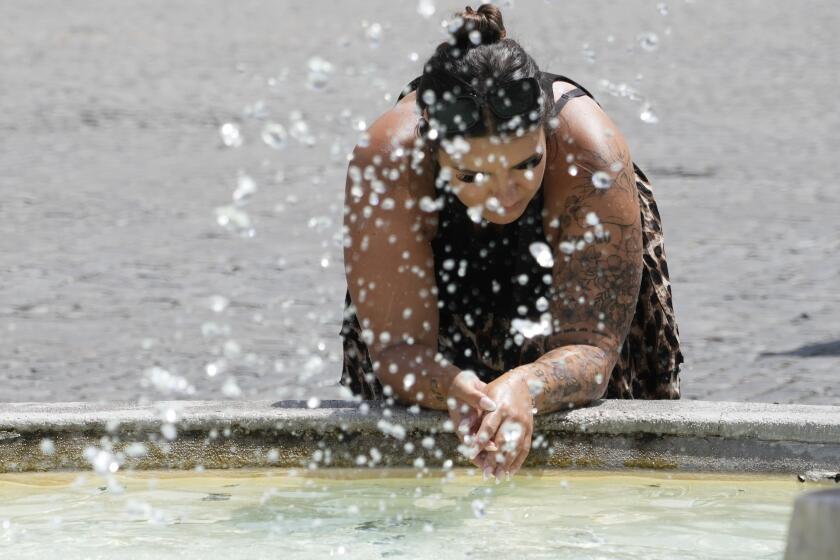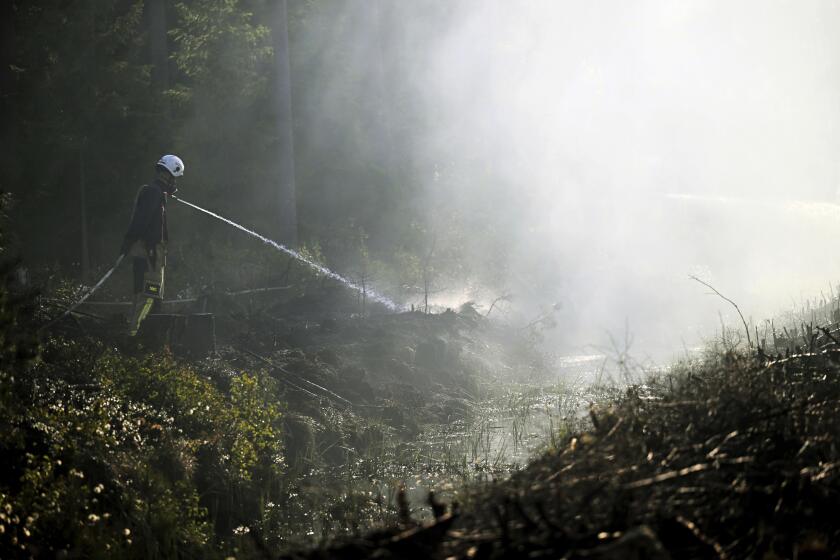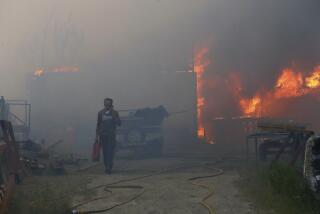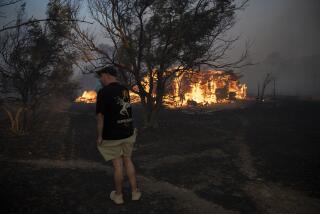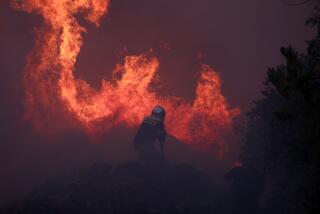Deadly wildfires in Greece, Italy, Algeria and elsewhere destroy homes, threaten nature reserves
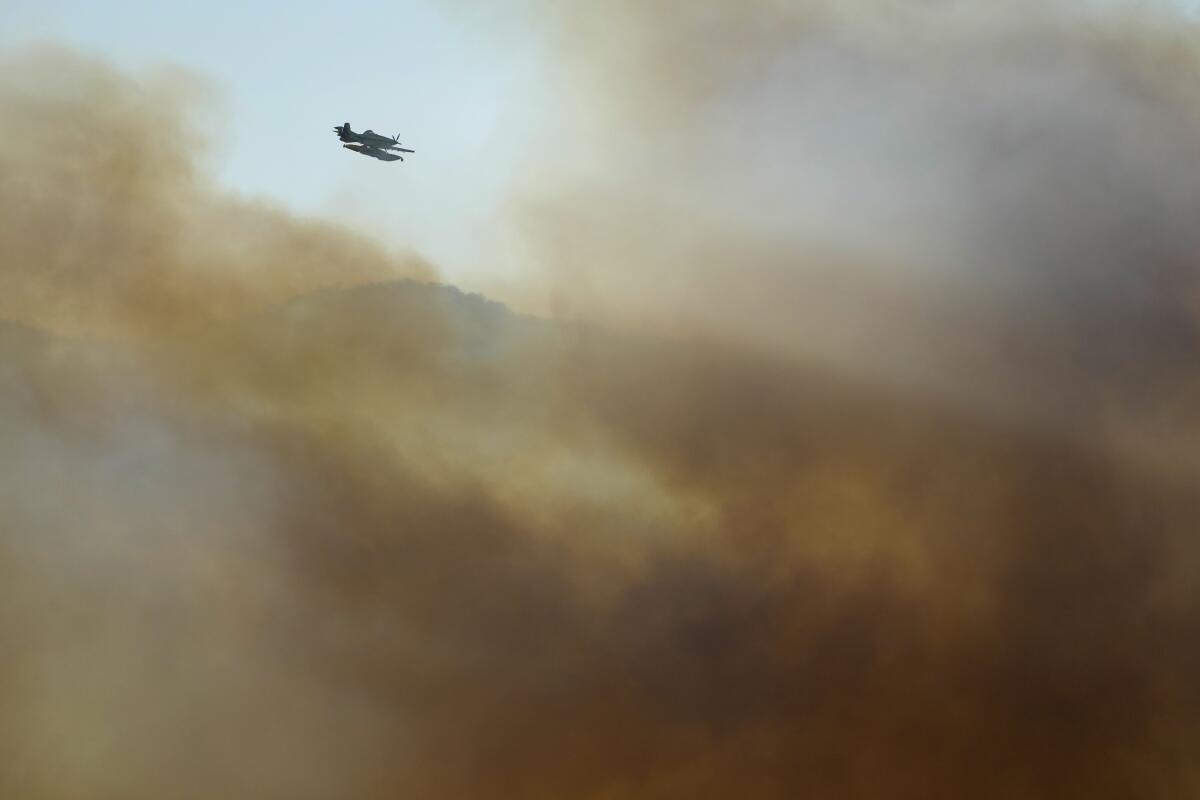
- Share via
RHODES, Greece — Deadly fires raging in Greece and other European countries advanced on Wednesday, destroying homes and threatening nature reserves during a third successive wave of extreme temperatures.
Summer wildfires have struck countries across the region, prompting the European Union to expand its support, including sending two Spanish firefighting planes to Tunisia after wildfires in neighboring Algeria left at least 34 people dead in recent days.
Here’s a look at some of the major wildfires across Europe and in Algeria.
Greece
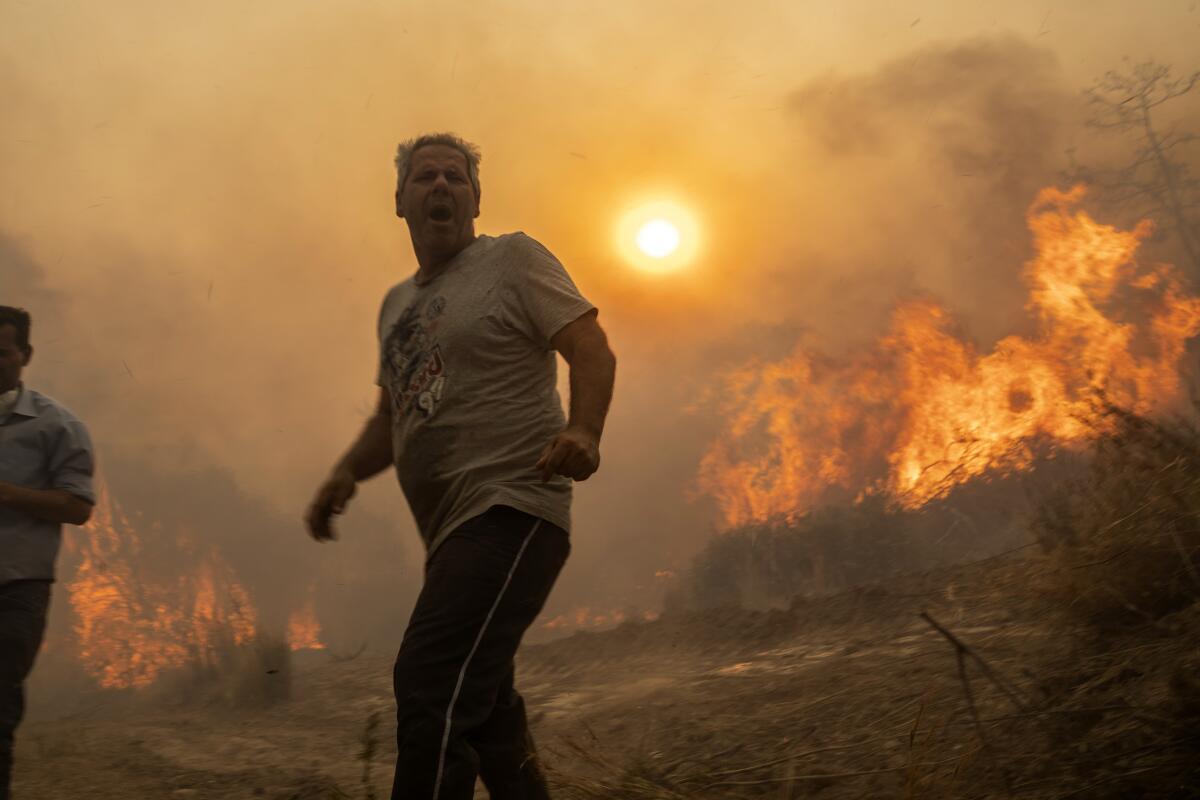
New evacuations were ordered on the islands of Corfu, Evia and Rhodes, where thousands of tourists were moved to safety over the weekend. Authorities said the charred remains of a missing farmer were found in Evia — a discovery made following the deaths of two Greek firefighting pilots who crashed while making a low-altitude water drop.
The heat wave in Greece has pushed temperatures back above 104 degrees while strong winds hampered firefighting efforts. The fire on Rhodes has damaged an inland nature reserve.
Algeria
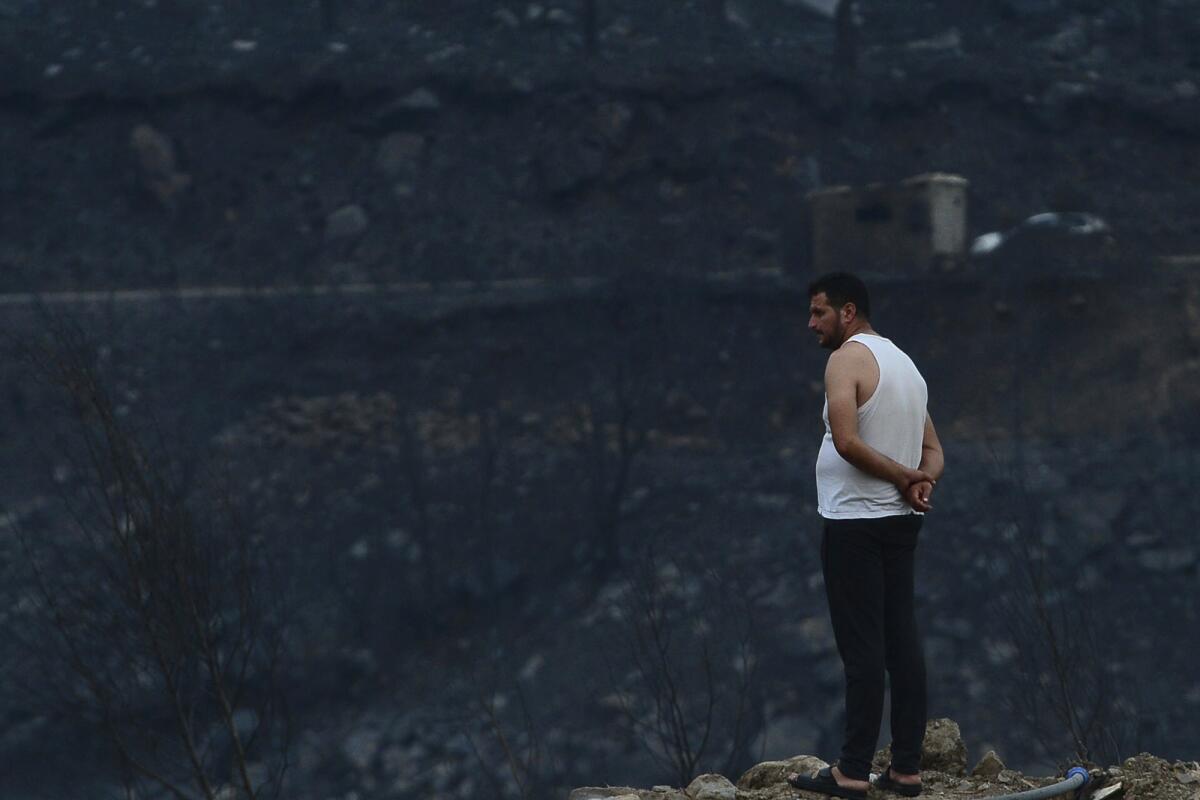
Following three days of destruction, most major fires in Algeria have been contained or put out, thanks to a huge mobilization of aerial and ground resources as well as falling temperatures, authorities said.
The death toll stood at 34, including 10 soldiers who had been assisting in evacuations. Critics say the government’s efforts to prepare for the wildfires were insufficient following two deadly fire seasons in 2022 and 2021.
Italy
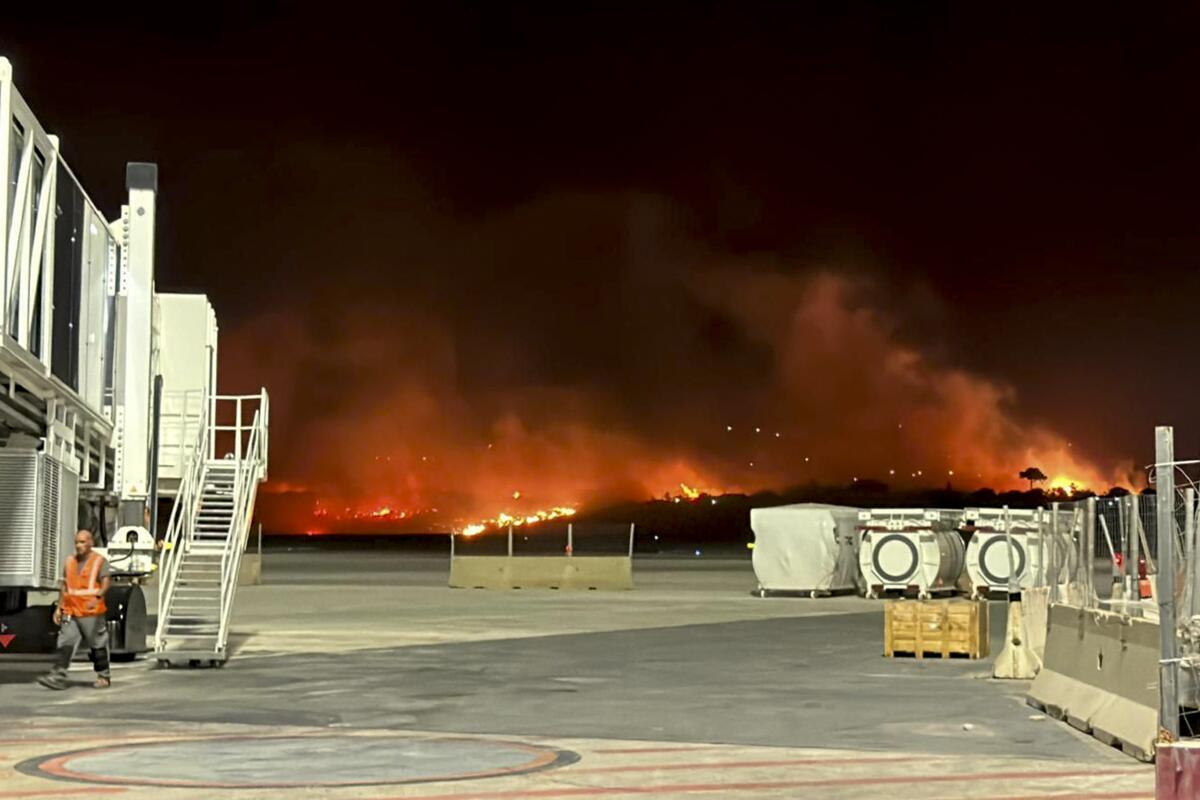
The bodies of two older people were found in a home that had been consumed by flames near the Palermo airport, on the island of Sicily, which had been closed temporarily because of the encroaching flames, according to Italian news reports.
Firefighters battled wildfires across southern Italy as searing temperatures continued to scorch Sicily, Sardinia and Calabria, where dozens of fires broke out and multiple evacuations were ordered. Freak storms in the north of the country also left two people dead on Tuesday from falling trees.
A second heat wave in two weeks has hit the Mediterranean, where firefighters are battling blazes in Greece, Spain and Switzerland.
Croatia
A wildfire was burning not far from the famous walled town of Dubrovnik, in the country’s south along the Adriatic Sea coast, where water-dropping planes and more than 100 firefighters held back the blaze before it reached houses overnight. The medieval stone city is a protected heritage site and Croatia’s best known tourism destination.
“It’s been a long night, but we managed to stave off the part [of the fire] that is important because of the houses,” firefighting unit commander Stjepan Simovic said. “We must be careful because the wind has started to pick up and the fire can grow again.”
Summer is wildfire season in Southern Europe, but this year the continent’s north is also at risk, with forest fire warnings in effect.
Portugal
More than 500 firefighters continued to combat a blaze close to Lisbon. The fire forced the evacuation of 90 people from their homes along with 800 farm animals.
The blaze near the coastal town of Cascais, 19 miles west of Lisbon, was brought under control early Wednesday, helped by cooler temperatures. Firefighters remained in the area to watch for any further flare-ups as temperatures and winds rose again Wednesday. Fears rose that it might spread deep into the nearby Sintra-Cascais Natural Park. No injuries were reported.
Turkey
A hospital and a dozen homes were evacuated as a precaution in the coastal town of Kemer, where firefighters for a third day battled a blaze raging through a woodland. At least 10 planes, 22 helicopters and hundreds of firefighters were deployed to extinguish the fire. Five helicopters with night-vision capabilities worked through the night, the state-run Anadolu Agency reported.
Spain
Officials said that sparks from a brush cutter set off a wildfire on Gran Canaria island off the northwest coast of Africa. The fire in the Caldera de Los Marteles volcanic area started when a worker using the cutter was clearing land with two others, island President Antonio Morales told reporters. The three workers tried in vain to extinguish the ensuing fire before calling emergency services. Several water-carrying helicopters were being used by firefighters and Morales said they hoped to have the blaze under control later in the day. About 740 acres of the mountain area has been burned.
Derek Gatopoulos reported from Athens. Jovana Gec in Belgrade, Serbia; Suzan Fraser in Ankara, Turkey; Ciaran Giles in Madrid; and Nicole Winfield and Frances D’Emilio in Rome contributed to this report.
More to Read
Sign up for Essential California
The most important California stories and recommendations in your inbox every morning.
You may occasionally receive promotional content from the Los Angeles Times.
